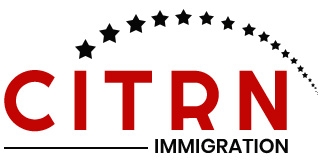
Find out if your represenative is authorized
Find out if your represenative is authorized
How to Know if Your Immigration Representative is Authorized: A Beginner's Guide
Immigration to Canada is very complex, and many individuals require immigration representatives to help them out. Whether you are applying to come to Canada with a visa, permanent residence, or making a refugee claim, having the right representative-experience will make it that much smoother. Not all of them are accredited representatives, who are legally permitted to offer immigration services; find out whether yours is an accredited representative.
Why Is It So Important to Use an Authorized Immigration Representative?
The Canadian laws are very strict about who can represent you or give advice for some money. An immigrant is strictly not allowed to handle immigration issues by any unapproved person. In case a migrant hires an unauthorized representative, problems in the form of incorrect documentation, application rejection, and even financial loss may arise.
- You can be sure that the application you did with the authorized representative will be in line with the guidelines of the Canadian rules of immigration .
- You are saved from the trouble of delay caused by wrong information or incorrect documentations.
- You can seek legal redress in case of anything that might go wrong at the process.
Fraudulent schemes are conducted by unauthorized representatives. Such representatives may violate your immigration to Canada or, later on, application.
Who Is Classified as an Authorized Immigration Representative?
In Canada, only a few professionals are eligible to represent a client before an immigration officer for a fee. Authorized representatives fall under the following categories below:
1. Regulated Immigration Consultants:
Licensed Immigration Consultants **who are good-standing members of the College of Immigration and Citizenship Consultants (CICC)**. Members of CICC are licensed and permitted to offer immigration services, as they are bound by the rigorous standards of professionalism and ethics that CICC enforces.
2. Lawyers:
Practitioners who are licensed by a Canadian provincial or territorial law society are authorized to issue immigration documents. Lawyers that are members have to be regulated by the specific law societies and can handle representation up to appeals at court level.
3. Québec Notaires:
The more peculiarly Quebec notaries, being members of the Chambre des notaires du Québec, are also qualified to deal with immigration matters.
4. Paralegals in Ontario:
Licenced paralegals** in Ontario are regulated by the **Law Society of Ontario.** Once licenced, these paralegals are authorized to deliver immigration service.
In addition, you might seek the help of an unpaid representative, such as a member of your family, a friend, or a community organization, to represent you with your immigration application. Keep in mind that your unpaid representative cannot collect a fee from you.
How to Ensure Your Immigration Representative is Authorized
Before hiring an immigration representative, please ensure that they have obtained the right credentials. Here is how you verify if your representative is indeed authorized:
Check if your immigration consultant is registered.
You can verify whether an immigration consultant is authorized through checking their status on the CICC's public registry on its website. You can find a consultant by searching for them by name or registration number. Here's what you should look for:
- Full Name of the Consultant
- License Number
- Status (active, suspended, revoked)
Have the consultant be listed as a member in good standing. If his name does not appear in the registry, the person cannot act on your behalf.
Check Lawyers
Each province and territory of Canada has a law society that regulates lawyers. To determine if a lawyer is licensed to practice immigration law:
- Ontario The availability of the **Law Society of Ontario online directory** would be used to verify name, licence, and status.
- British Columbia The member directory of the **Law Society of British Columbia** can be accessed to confirm if the lawyer is licensed and in good standing.
- Other provinces The site for the law society would be checked to verify the lawyer's credentials.
The directories also indicate if the lawyer is licensed to practice law and represent immigration clients.
Check Quebec Notaries
In Quebec, notaries are regulated by the **Chambre des notaires du Québec**. You can see if your notary is registered here by searching the notary name or license number on the Chambre website. Verify that the notary is a member in good standing and is licensed to provide immigration services.
Verify Paralegals in Ontario
In Ontario, eligible paralegals can represent clients in certain immigration cases. You can check a paralegal's credentials at **Law Society of Ontario's directory**. A paralegal must be licensed and in good standing to provide advice on immigration or to represent clients.
Red Flags of Unauthorized Representatives
Choose your immigration representative carefully. Here are some red flags that could indicate you're dealing with an unauthorized or fraudulent representative:
Lack of License or Registration Number
Legal representatives don't mind showing you their license or registration number. If they cannot or won't, be cautious, or refuse by telling you that they don't need a license.
High Fees with No Contract
Authorized representatives will give you a clear, written contract of the services they will provide and their fees. Be very wary of somebody who wants large sums of money up front without an agreement in writing.
Guarantees of Success
A no immigration representative can promise that your application will be approved. If somebody claims they have special influence or can guarantee success, this is a red flag.
Requests for Cash Payments
The authorized representatives always accept secure payments through bank transfers or credit cards. Be cautious of the demand for cash payments without receipts or papers.
Protecting Yourself Against Immigration Scams
Immigration scams are serious frauds that may lead to serious financial and legal consequences. To protect yourself against such fraudsters, here is how you can do it:
- Research It
Before you hire an agent, check their background. Check the credibility of the agent with the CICC, law society, or any other regulatory authority. Online reviews or a referral from someone you trust can also be considered. - Get Everything in Writing
This is important, as it will also protect you legally just in case there may be a problem. Keep copies of all agreements, communications, and receipts. - Steer Clear of Unsolicited Offers
Be on your guard against representatives who contact you unsolicited via email, social media, or phone calls. Usually, fraudsters use such methods to lure people into their fraudulent scheme. - Report Suspicious Activity
If you suspect that an unauthorized representative is posing as a representative on your behalf, contact a representative of the case immediately. You can lodge complaints with the CICC, the provincial law society in your province, or the Canadian Anti-Fraud Centre


Looking for safety and a fresh start in Canada?
Explore refugee sponsorship programs and begin your journey to a new life.
Contact us today for support and guidance.

